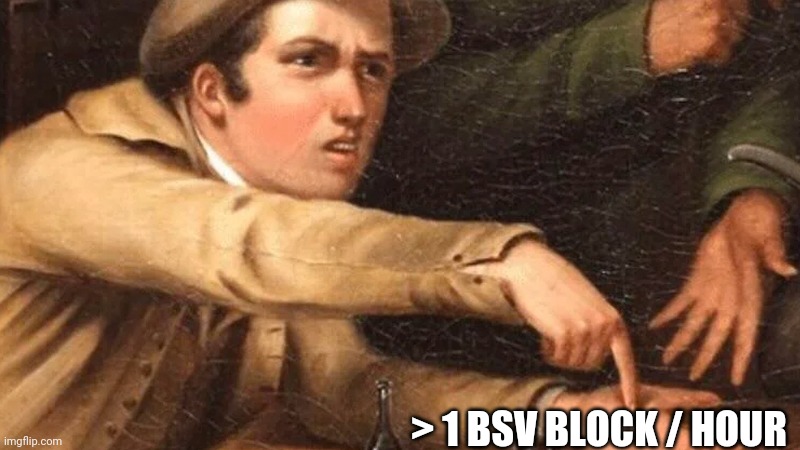yet somehow such a position is inexplicable -- even abhorrent -- to several BCH/BU people (molecular, bagatell, sickpig, awemany, solex, peter_r et alia). they preferred to end their support for unlimited blocksize and their participation in this thread rather than to consider it an option
in fairness, there was also a rejection of the patent strategy, and a deep-seated discomfort with legal maneuvering. let's look at this freedom of the free stance a bit more.
in the earliest stages nobody could anticipate BTC ever going to the moon in the way it did (0 to 60K
is unbelievable). a sounder, more realistic plan for someone with advance knowledge of the intricate details of the tech would have been to patent and build systems complementing the open protocol. let's call someone in this position an early hawk. an early hawk may but need not have had a hand in establishing the protocol. early hawks that did have a hand establishing the protocol must certainly have worried about whether issuing a token that could hold monetary value would be interpreted as running afoul of the law, von NotHous style.
by contrast, open source devs who came some time later (1) were under the impression that the anon protocol needed improvement and (2) started to believe, based on the course of events, that bitcoin could stand the same ground as fiat currencies, or even replace them. this is in turn consonant with (3) a tendency to be inimical to such pesky governmental intrusions as taxation, financial regulation, and patent enforcement. at the same time (4) second-stage open source devs were not worried about directly running afoul of the law.
the incentives and beliefs of someone who holds (1) and (4) are manifestly in opposition to those of an early hawk. as things turned out, the open source devs, buoyed -- emboldened, even -- by the fact that bitcoin did improbably generate a new asset class (cf. (2)), could afford to ignore or dismiss early hawks. the historic rise of a new, unregulated, cross-border, number-theory secured asset class, in which they played an active role, also reinforced their dislike for taxes, patents, regulations, and legal maneuvers (3).
yet what would have been your plan and how would you have acted if you had been an early hawk?
also imagine you could look at the situation as it is today from a maximally informed but completely detached position: which project would you invest on long term: that of the early hawk's (i use the definite article because there is in fact exactly only one such self-declared project), or that of a 1-4 team (in which case you have more choice)?




